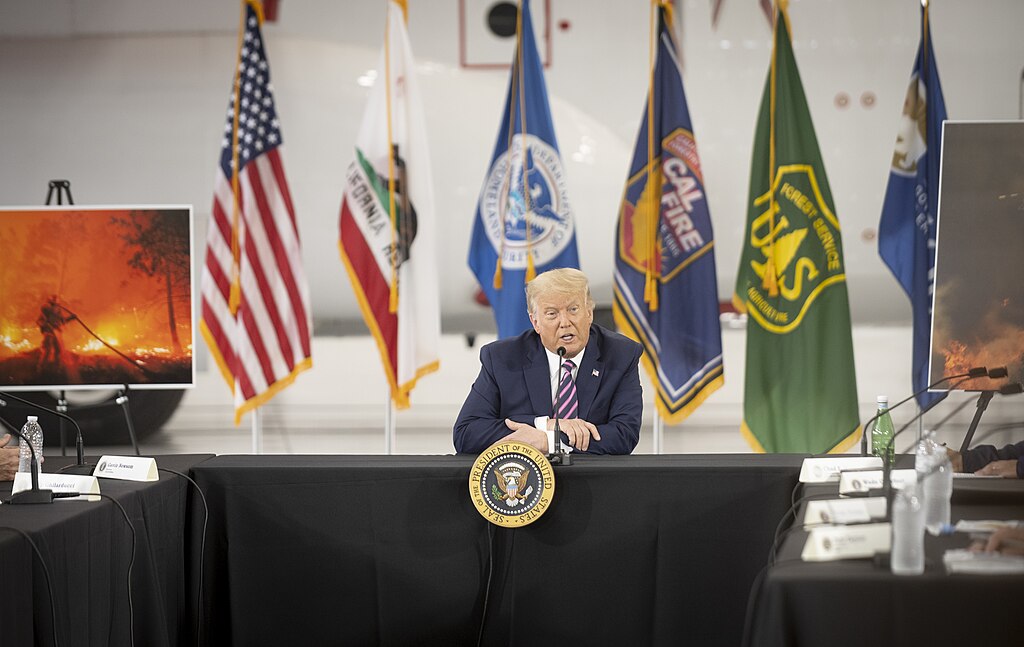In a bold move that has already drawn sharp criticism and heated debate, President-elect Donald Trump confirmed plans to declare a national emergency on border security, a decision aimed at facilitating the mass deportation of undocumented migrants using the U.S. military. The announcement underscores Trump’s commitment to tackling immigration issues as a cornerstone of his administration, but the sweeping proposal is poised to ignite a political firestorm.
The strategy, which Trump revealed through his transition team, would leverage emergency powers to bypass certain legal and bureaucratic hurdles in addressing what he has described as an “unprecedented border crisis.” The plan includes deploying military personnel to assist with enforcement, detention, and transportation of individuals identified for removal.
Legal and Political Ramifications
Declaring a national emergency to address immigration is not without precedent; however, Trump’s proposal raises significant legal and ethical questions. Critics argue that utilizing the military for domestic law enforcement functions encroaches on the long-standing Posse Comitatus Act, which restricts military involvement in civilian affairs.
Civil rights organizations have already signaled intentions to challenge the move in court, describing the plan as unconstitutional and inhumane. “This is a misuse of national emergency powers that sets a dangerous precedent,” said a spokesperson for the American Civil Liberties Union (ACLU).
Republican lawmakers, while generally supportive of stricter border policies, appear divided on the militarization aspect. Some GOP leaders have expressed concerns about the long-term implications of such an aggressive strategy. Democratic leaders, meanwhile, have labeled the proposal as "an extreme overreach of executive power" and pledged to oppose it vigorously in Congress.
Key Components of the Plan
The Trump administration’s plan reportedly includes collaboration with Immigration and Customs Enforcement (ICE) to identify and process individuals for deportation more efficiently. Military units will provide logistical support, including transportation to border facilities and detention centers.
Sources within the transition team suggest the national emergency declaration would also unlock federal funding to build additional detention facilities and enhance surveillance technology at the southern border. However, no clear timeline for implementation has been provided, raising questions about the feasibility of such an ambitious endeavor.
Public Reactions
Reactions from the public have been as polarized as the political landscape itself. Supporters argue that the move is a long-overdue measure to restore order at the border and address the financial burden of illegal immigration. “This is the bold leadership we voted for,” said one Trump supporter at a rally.
Opponents, however, have taken to social media and public protests to voice their dissent, accusing the administration of weaponizing fear and disregarding basic human rights. Advocacy groups warn that the plan could tear families apart and lead to significant economic disruptions in industries reliant on undocumented labor.
Moving Forward
As the inauguration date approaches, the world watches closely to see whether Trump will follow through on his promise. If enacted, the national emergency declaration and military-backed deportation plan could become one of the most controversial and defining moments of his presidency.



 Australian PM Calls Alleged Western Australia Terror Plot “Deeply Shocking” After Arrest
Australian PM Calls Alleged Western Australia Terror Plot “Deeply Shocking” After Arrest  Middle East Conflict Escalates After Khamenei’s Death as U.S., Israel and Iran Exchange Strikes
Middle East Conflict Escalates After Khamenei’s Death as U.S., Israel and Iran Exchange Strikes  Israel Strikes Hezbollah Targets in Lebanon After Missile and Drone Attacks
Israel Strikes Hezbollah Targets in Lebanon After Missile and Drone Attacks  Australia Rules Out Military Involvement in Iran Conflict as Middle East Tensions Escalate
Australia Rules Out Military Involvement in Iran Conflict as Middle East Tensions Escalate  Trump Says U.S. Combat Operations in Iran Will Continue Until Objectives Are Met
Trump Says U.S. Combat Operations in Iran Will Continue Until Objectives Are Met  Trump Announces U.S. Strikes on Iran Navy as Conflict Escalates
Trump Announces U.S. Strikes on Iran Navy as Conflict Escalates  Iran Supreme Leader Ayatollah Ali Khamenei Killed in Israeli, U.S. Strikes: Reuters
Iran Supreme Leader Ayatollah Ali Khamenei Killed in Israeli, U.S. Strikes: Reuters  Russia Signals Openness to U.S. Security Guarantees for Ukraine at Geneva Peace Talks
Russia Signals Openness to U.S. Security Guarantees for Ukraine at Geneva Peace Talks  Trump Orders Federal Agencies to Halt Use of Anthropic AI Technology
Trump Orders Federal Agencies to Halt Use of Anthropic AI Technology  Trump to Address Nation as U.S. Launches Strikes in Iran, Axios Reports
Trump to Address Nation as U.S. Launches Strikes in Iran, Axios Reports  Pentagon Leaders Monitor U.S. Iran Operation from Mar-a-Lago
Pentagon Leaders Monitor U.S. Iran Operation from Mar-a-Lago  EU Urges Maximum Restraint in Iran Conflict Amid Fears of Regional Escalation and Oil Supply Disruption
EU Urges Maximum Restraint in Iran Conflict Amid Fears of Regional Escalation and Oil Supply Disruption  Pakistan-Afghanistan Tensions Escalate as Taliban Offer Talks After Airstrikes
Pakistan-Afghanistan Tensions Escalate as Taliban Offer Talks After Airstrikes  Trump Launches Operation Epic Fury: U.S. Strikes on Iran Mark High-Risk Shift in Middle East
Trump Launches Operation Epic Fury: U.S. Strikes on Iran Mark High-Risk Shift in Middle East  Pentagon to Halt Ivy League Programs for U.S. Military Officers Starting 2026
Pentagon to Halt Ivy League Programs for U.S. Military Officers Starting 2026  Israel Launches Fresh Strikes on Iran After Death of Supreme Leader Ayatollah Khamenei
Israel Launches Fresh Strikes on Iran After Death of Supreme Leader Ayatollah Khamenei  Israel Declares State of Emergency as Iran Launches Missile Attacks
Israel Declares State of Emergency as Iran Launches Missile Attacks 
































